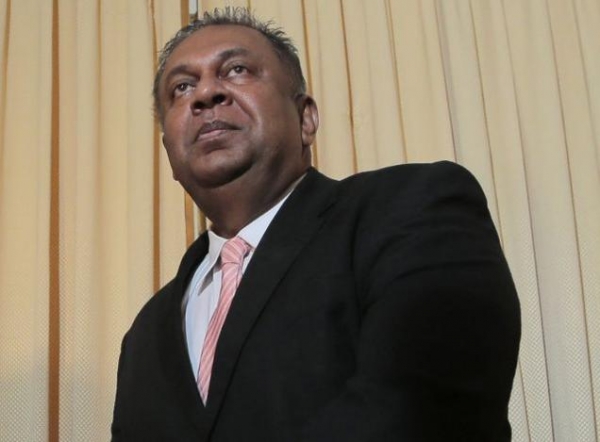Finance and Media Minister Mangala Samaraweera said the passage of the Inland Revenue Act and the introduction of market-based fuel pricing are major steps in terms of improving fiscal sustainability. In 2017 we achieved a primary surplus in the budget for the first time in several decades.
"The results of this fiscal improvement are already materialising with interest rates beginning to moderate as the 1 year Treasury bill yield has declined by 60 basis points in the last 2 months," he added.
The Minister made these remarks while addressing the the “CEOs Forum 2018”, organised by the Postgraduate Institute of Management Alumni Association (PIMAA), last Friday.
Samaraweera also added, "Our exports hit an all-time high in 2017, as did FDI. Foreign reserves also reached comfortable levels in spite of rising global interest rates, whilst inflation is within the target ranges.
Thus, it is clear that the government has successfully navigated the macro-economy into calm, stable waters, in spite of precarious global conditions and onerous external debt obligations.
Whilst acknowledging our gains, in the short term the clear priority is for the government to take measures to kick start economic growth. It is in this context that we have accelerated two key programmes – “Enterprise Sri Lanka” and “Gamperaliya”, which can have a transformational impact on both rural and urban economies.
Despite creating a conducive economic environment; a country will never truly develop without investing in its people – our greatest resource. This government has prioritised spending on education and health services.
Expenditure on education, higher education, skills & vocational training reached 2% of GDP in 2017 and will be 2.1% of GDP in 2018. Expenditure on health was 1.55% of GDP in 2017 and will be 1.69% of GDP this year.
Such expenditure on social infrastructure may not be visible like a mega project– but it has a meaningful impact on the well-being of people. As a government that strongly believes in international partnerships, not isolation, we have pledged to achieve the United Nations Sustainable Development goals by 2030, in order to realise the full potential of our entire population.
Every citizen in this country will become a shareholder of the knowledge based, highly competitive social market economy that has been envisaged in our Vision 2025 policy document.
It is therefore clear that this government has not taken the easy short cuts towards populist economic interventions that can provide short term benefits but leads to long term pain.
We have inherited the adverse effects of such myopic policies implemented in the past but chose not to tread the same path.
A set of well thought out measures are being implemented to provide a sustainable, long term solution to the development needs of Sri Lanka."










